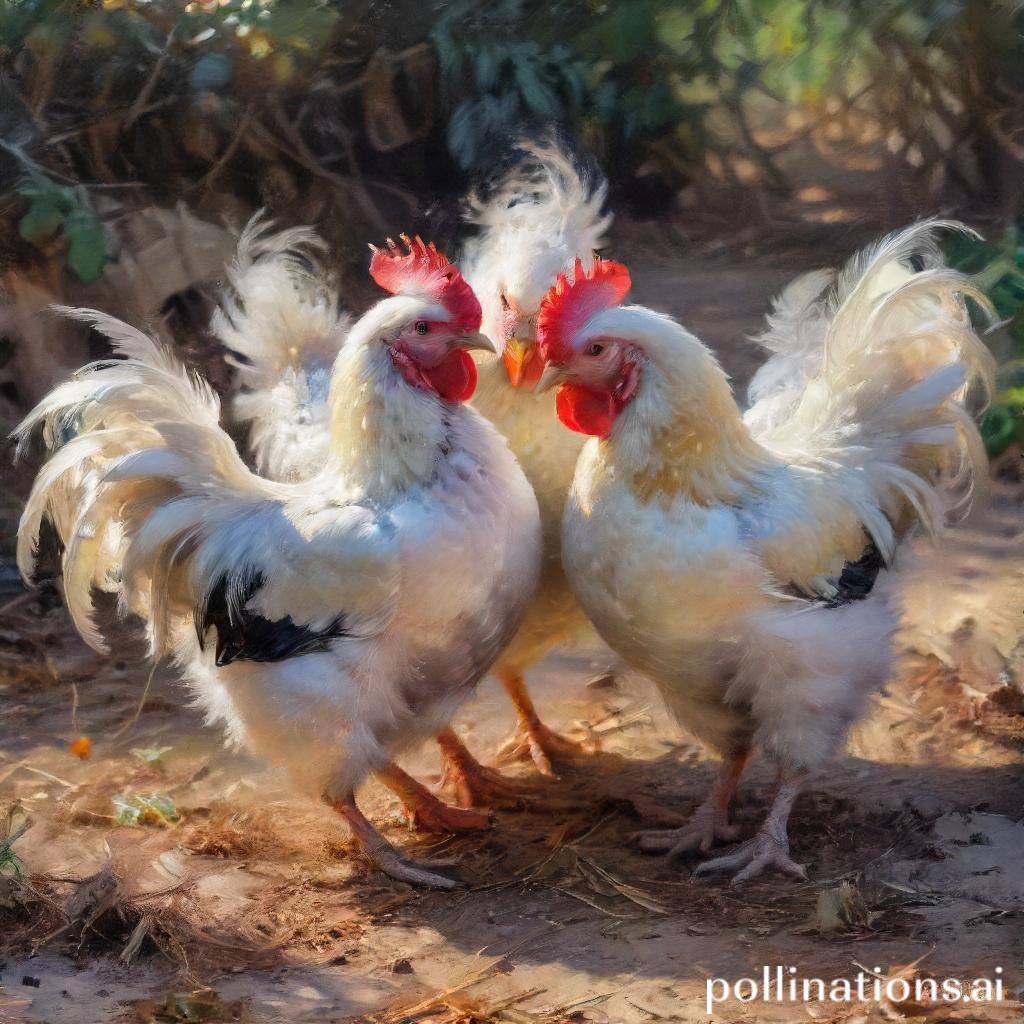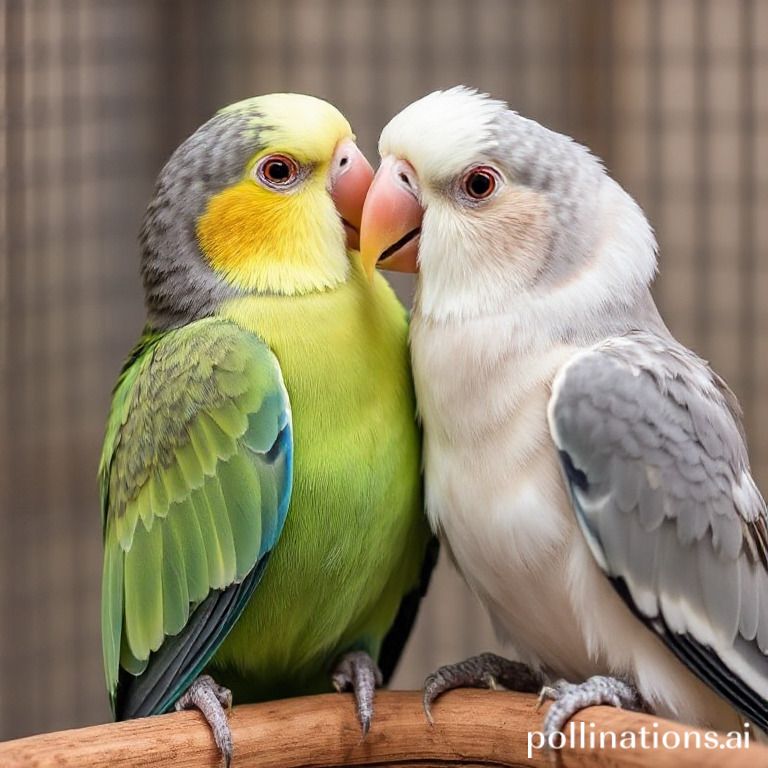Are you struggling with chickens pecking each other and unsure how to stop this harmful behavior? Look no further! We understand the importance of maintaining the well-being of your flock and have the solutions you need. Whether you’re a seasoned chicken owner or just starting out, our expert tips and advice will guide you in managing aggression and promoting a harmonious environment.
From preventive measures to effective behavioral interventions, we have you covered. Don’t let pecking ruin the harmony of your flock. Discover the strategies that will keep your chickens happy and healthy, without any unnecessary harm.
KEBONNIXS Automatic Chicken Cup Waterer and Port Feeder
Provide Fresh Water and Feed for Your Chickens Effortlessly
The psychology behind chicken pecking behavior
Pecking behavior is a natural aspect of chicken flocks, driven by their inherent hierarchical structure. Discerning the psychology behind this behavior is crucial for poultry owners to ensure the well-being of their chickens.
The natural hierarchy in a chicken flock
Chickens have a social structure where each member of the flock holds a specific rank or position. This hierarchy is established through a pecking order, where dominant chickens assert their authority by pecking subordinates. The pecking order serves to maintain order, allocate resources, and establish social stability within the flock.
Factors contributing to aggressive pecking
Several factors can contribute to aggressive pecking behavior in chicken flocks. Discerning these factors is crucial for implementing effective strategies to prevent and manage such behaviors:
- Stress: High-stress environments, such as overcrowding or inadequate living conditions, can trigger aggression among chickens.
- Lack of stimulation: Boredom or lack of environmental enrichment can lead to increased aggression as chickens seek activities to alleviate their boredom.
- Resource competition: Limited access to food, water, or nesting areas can result in aggressive pecking as chickens compete for these essential resources.
- Genetic predisposition: Some chicken breeds may be more prone to aggressive behavior due to their genetic makeup.
To address and prevent aggressive pecking behavior, poultry owners can implement various strategies and interventions. Providing adequate space, enrichment activities, and a well-balanced diet can help minimize stress and alleviate boredom. Ensuring ample resources and avoiding overcrowding can reduce competition and minimize aggression. Additionally, selectively breeding for docile traits can help reduce the occurrence of aggressive pecking behavior in chicken flocks.

Preventive tactics to decrease pecking
Pecking behavior in chickens can be harmful to their well-being and the overall harmony of a flock. To prevent chickens from engaging in detrimental pecking, it is important to implement effective preventive measures and create a supportive environment for their social dynamics. Here are some strategies to consider:
1. Providing adequate space and resources for chickens
Chickens require sufficient space to move around and establish their territories. Overcrowding can result in stress and increased aggression, leading to pecking behavior. Make sure that each chicken has enough room to roam and access to essential resources like food, water, and nesting areas.
2. Implementing proper nourishment and hydration
A balanced diet is crucial for maintaining the overall health and well-being of chickens. Ensure that they are provided with high-quality feed that meets their nutritional requirements. Additionally, make sure there is a constant supply of fresh water to keep them hydrated. Malnourished or dehydrated chickens are more prone to pecking and aggressive behavior.
By addressing the underlying causes of pecking behavior and implementing these preventive measures, you can create a harmonious and stress-free environment for your chickens. Remember to closely monitor their behavior and seek professional advice if the issue persists.
| Preventive Tactics | Benefits |
|---|---|
| Providing adequate space and resources for chickens | Reduces stress and aggression |
| Implementing proper nourishment and hydration | Promotes overall health and well-being |
Strategies for Managing Pecking Behavior
Pecking behavior in chickens can sometimes result in aggression and harm within a flock. Fortunately, there are effective techniques that can be used to prevent chickens from engaging in such behavior. By Discerning the causes of pecking and implementing appropriate management practices, you can ensure the well-being and harmony of your flock.
1. Beak Trimming as a Last Resort
As a last resort, beak trimming can be considered. This involves removing a small portion of the beak to reduce the potential for harm. Despite this, beak trimming should only be done by experienced professionals and under specific circumstances where other methods have failed. It is generally recommended to explore alternative strategies before resorting to beak trimming.
2. Using Distractions to Redirect Aggressive Behavior
Another technique for managing pecking behavior is using distractions to redirect aggression. By providing chickens with various forms of entertainment or environmental enrichment, their focus can be redirected away from engaging in harmful pecking behaviors. This can include hanging treats, puzzle feeders, or introducing new objects or structures within the coop or run for them to explore and interact with.
Subheadings:
2.1 Choosing Suitable Distraction Methods
When selecting distraction methods, it is important to consider the preferences and behaviors of your specific flock. Different chickens may be more inclined towards certain types of distractions, such as pecking at hanging vegetables or playing with interactive toys. By observing their reactions and adjusting the distractions accordingly, you can find the most effective methods to redirect their aggression.
2.2 Rotating Distractions to Maintain Interest
Chickens can become accustomed to certain distractions over time, which reduces their effectiveness. To prevent this, it is advisable to rotate the types of distractions provided. Introducing new and different items on a regular basis can help maintain their interest and prevent boredom, which can contribute to pecking behavior.

Behavioral Strategies for Pecking
1. Introducing New Chickens with Caution
When introducing new chickens to an existing flock, it’s important to be cautious in order to minimize stress and reduce the likelihood of pecking behaviors.
- Quarantine: Before introducing new chickens, isolate them for a period of time to observe their health and ensure they are not carrying any diseases.
- Gradual Introduction: Gradually introduce new chickens to the flock, allowing them to interact through a fence or mesh enclosure before fully integrating them.
- Supervised Integration: Closely monitor the interactions between new and existing chickens during the integration process to intervene if any aggressive behavior occurs.
2. Addressing Stress and Boredom in the Flock
Stress and boredom can contribute to pecking behaviors in chickens. By addressing these factors, you can help create a peaceful and harmonious flock.
- Provide Sufficient Space: Chickens require enough space to move around comfortably. Ensure that the coop and outdoor run are spacious enough to accommodate the entire flock.
- Environmental Enrichment: Offer various forms of environmental enrichment, such as perches, dust-bathing areas, and foraging opportunities, to keep chickens mentally stimulated and prevent boredom.
- Nutrition: Make sure that chickens are receiving a balanced diet with adequate protein and proper nutrition. A well-fed flock is less likely to engage in harmful pecking behaviors.
- Reduce Stressors: Minimize stressors in the flock’s environment, such as loud noises, extreme temperatures, or overcrowding, as these can trigger aggressive behaviors.
Through assimilation these behavioral strategies, you can prevent pecking behaviors and promote a harmonious environment for your chickens. Remember, each flock is unique, so it may take some trial and error to find the most effective strategies for your specific situation.
Monitoring and Assessing Pecking Behavior
Pecking behavior in chickens can be a concerning issue, as it can result in injuries, stress, and reduced overall flock health. By monitoring and assessing pecking behavior, you can identify potential problems early on and take necessary steps to prevent further harm. Here are some key aspects to consider:
1. Signs to Watch Out For
When observing your flock, be on the lookout for the following signs that may indicate pecking behavior:
- Feather loss: Excessive feather loss, particularly around the head, neck, and back areas, can be a clear indication of pecking.
- Blood or wounds: Any visible signs of blood or wounds on the chickens’ bodies should be taken seriously, as they may be a result of aggressive pecking.
- Isolation or avoidance: Chickens that are constantly isolated or avoided by other flock members may be experiencing pecking issues.
- Abnormal behavior: Look for abnormal behaviors such as excessive squawking, running away, or flinching when approached by others.
2. Documenting and Tracking Instances of Pecking
To effectively manage pecking behavior, it is essential to document and track instances of pecking. This information will help you understand patterns, triggers, and potential solutions. Consider the following approach:
a. Observation records:
- Date and time: Record the date and time of each observed pecking event.
- Location: Note where the pecking occurred, whether it was in the coop, during feeding time, or in outdoor areas.
- Aggressor and victim: Identify which chicken initiated the pecking and which one received the pecks.
- Behavior description: Describe the specific behaviors observed during the pecking event, such as pecking intensity or duration.
b. Intervention strategies:
Alongside documenting instances of pecking, keep a record of the strategies or interventions implemented to address the issue. This will help you assess the effectiveness of different approaches over time.
By closely monitoring and documenting pecking behavior, you can gain valuable insights into the dynamics of your flock and take proactive measures to prevent and manage pecking issues.
Conclusion
Prioritizing proactive measures for chicken welfare is crucial in preventing chickens from pecking each other. By implementing strategies such as providing adequate space, enriching their environment, and managing their diet, we can promote healthier and happier chickens.
Additionally, seeking professional advice from veterinarians or experienced chicken keepers can offer valuable insights and solutions to address any issues that may arise. Taking these proactive steps will not only improve the overall well-being of your chickens but also create a harmonious and stress-free environment for them to thrive.
Frequently Asked Questions (FAQ) about Chicken Flocks
FAQ 1: How long does it take for new chickens to adjust to a flock?
New chickens typically take around 1-2 weeks to adjust to a new flock. Nevertheless, this can vary depending on the individual chickens and the flock dynamics.FAQ 2: Can pecking behavior be completely eliminated?
Whilst it may not be possible to completely eliminate pecking behavior in chickens, there are measures you can take to minimize it. Providing enough space, enrichment activities, and a balanced diet can help reduce pecking behavior among flock members.FAQ 3: What are the alternatives to beak trimming?
Beak trimming is a controversial practice. Some alternatives to beak trimming include providing proper space and environmental enrichment, using anti-pecking devices or sprays, and addressing any underlying health or nutritional issues in the flock.FAQ 4: How can I reduce stress in my chicken flock?
To reduce stress in your chicken flock, ensure they have a clean and well-ventilated coop, provide a balanced diet, maintain a consistent routine, and minimize any sudden changes in their environment. Additionally, giving them enough space and opportunities for exercise and social interaction can help reduce stress levels.FAQ 5: When should I consult a veterinarian about pecking behavior?
If you have tried various methods to address pecking behavior in your flock and it persists or escalates, it is advisable to consult a veterinarian. A veterinarian can assess the situation, rule out any underlying health issues, and provide guidance on managing and resolving the pecking behavior.Read Similar Post:
1. How Do Chickens Fuck?
2. What Causes Egg Bound In Chickens?

